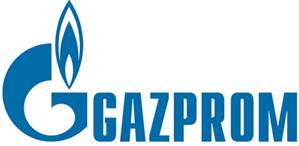Russia Mulls Market Liberalisation
Russia is considering domestic gas market liberalization in the next three years, the head of Federal Antimonopoly Service (FAS) Igor Artemev said May 25. Analysts predict that the illiquid gas exchange trade may not good enough to form a benchmark gas price, which is prerequisite for liberalization, they told NGE.
In an interview with TASS, Artemev said that the pricing difference between domestic and export gas prices might help to develop the market. Currently, about 40% of the domestic market is held by companies not affiliated with Gazprom, which is a precondition for liberalization, he said, the article noted.
Analysts told NGE that they are cautious about the process of liberalization and prices. “With a regulated price that has increased a lot in the past years, Gazprom is facing tough competition from any other producers that can sell at a lower price. This is in fact a half liberalisation that is negatively impacting Gazprom that cannot choose prices nor customers,” said Thierry Bros, a senior European gas analyst at Societe Generale, based in Paris.

“Full liberalisation is going to be difficult as the state wants gas to be delivered even to all customers. Addressing fuel poverty is easier if you have a regulated company that takes care of this,” he told NGE. For state-controlled Gazprom, the traditional trade-off has been its export monopoly; but now with European prices so low it is struggling to make money even there.
The government may decide to de-regulate domestic tariffs in the future on the basis of a supply-demand balance that a gas exchange would establish, which would mean lower prices. At the moment competitors sell at a small percentage discount – between 3% and 10% – to Gazprom’s higher, regulated price.
"A new price benchmark based on gas supply and demand may yield gas prices for Russia that are not necessarily higher but potentially lower than the current regulated tariffs," Pavel Kushnir, an analyst at Deutsche Bank, based in Moscow, told NGE.
FAS aims to present its proposals on tariffs of natural monopolies which are to be based in the next ten years on an ‘inflation-minus’ formula. By keeping gas tariff increases below inflation FAS aims to stimulate cost cutting and the sale of non-core assets.
"The Russian market is moving in the right direction: that is the development of gas exchange trading – similar to the US and Europe. That will not necessarily be positive for gas companies, as the Russian market is well-supplied if not oversupplied, so the liberalised market price may turn out lower, not higher, than the current regulated tariff," Kushnir said.
Gas exchange trading is still very illiquid, which is not enough to form a benchmark, he said. Recently, independent gas companies opposed selling 10% of their total production on the gas exchange; while Gazprom may be required to sell 6% of its production. However, it will happen sooner than later, but the liberalization effect could be negative for Russian gas companies, Kushnir said.
A source at FAS told NGE earlier this month that at the moment some 10bn m³ are sold annually on the St Petersburg exchange and the plan is to raise that to at least 30bn m³. Gazprom may sell up to 17.5bn m³/yr, but sells less than that. He said there are six sellers and around 60 buyers, including end-users active in 412 regions of Russia.
When exchange trading first took off in 2007-8, Gazprom's regulated price was much lower than the exchange price. Then the contract was dropped and not relaunched until 2014. He said an exchange committee had been established to define the market price of gas.
Russia has already effectively sacrificed the interests of gas sector to support growth of general economy. Russia has issued a moratorium on gas tariff increases in September 2013, while Moscow planned just 2% rise for industrial users in 2016-19.
As the liberalization efforts continue slowly, the government is struggling to cope with the drop in oil and gas prices. In May 26, Russia’s finance minister Anton Siluanov said that the share of oil and gas revenues in overall budget revenue fell to 43% in 2015, whilst the share further dipped to 34% in the first quarter of 2016.
Murat Basboga


